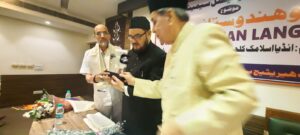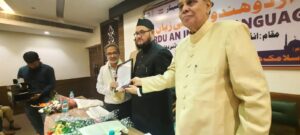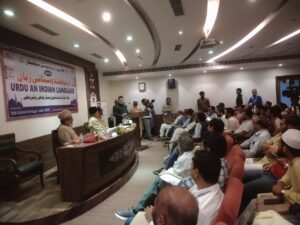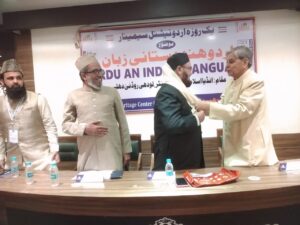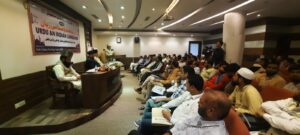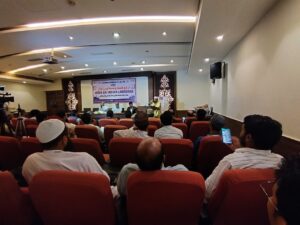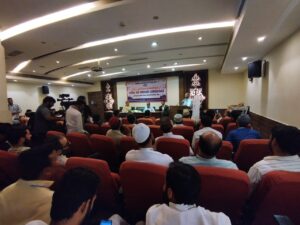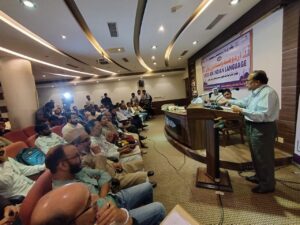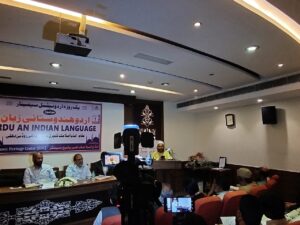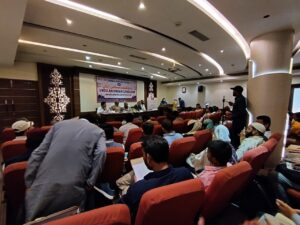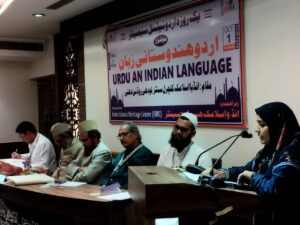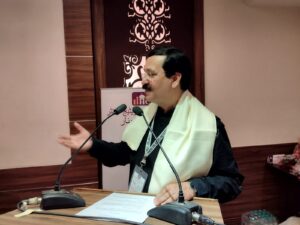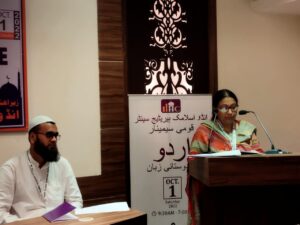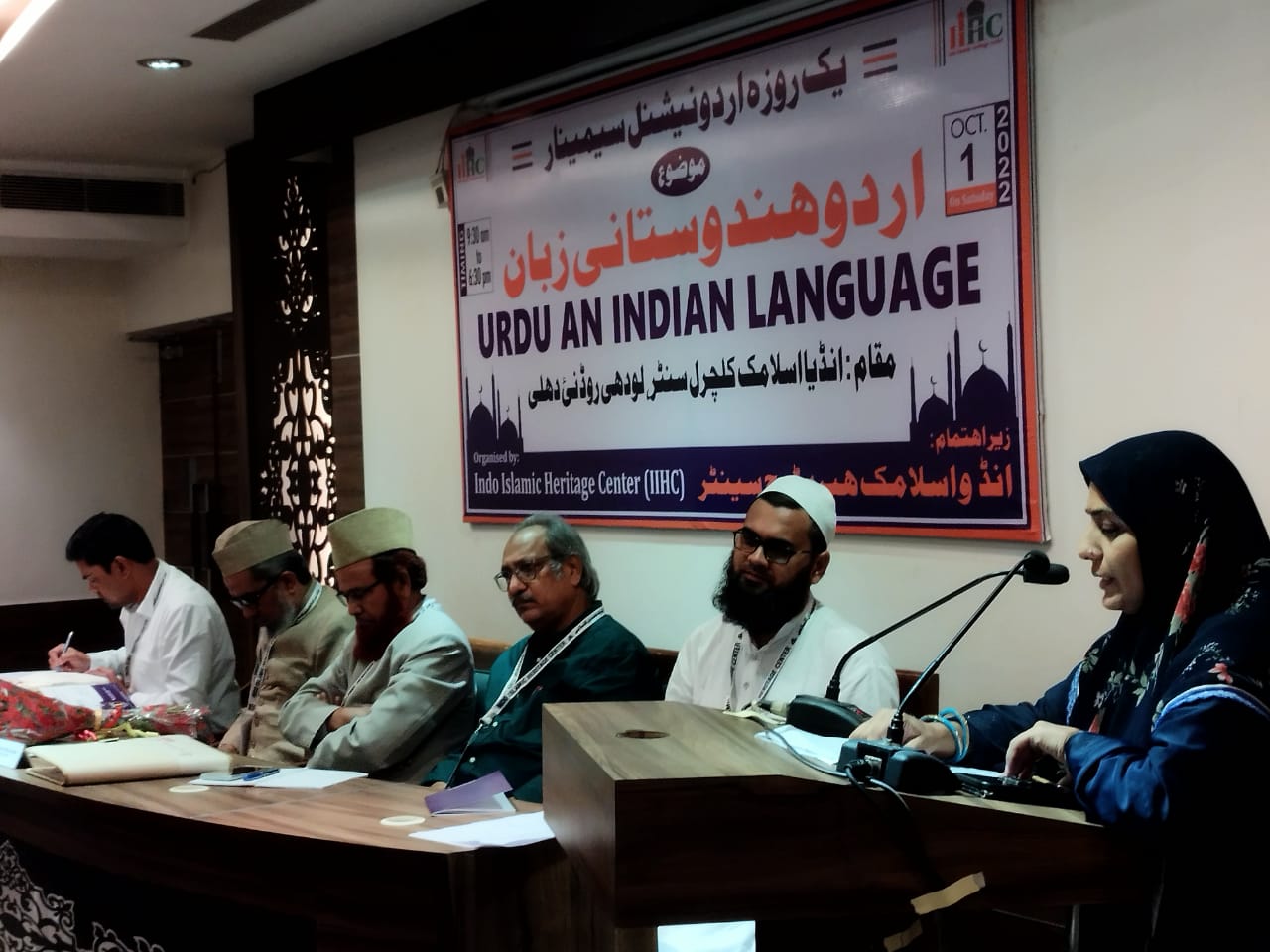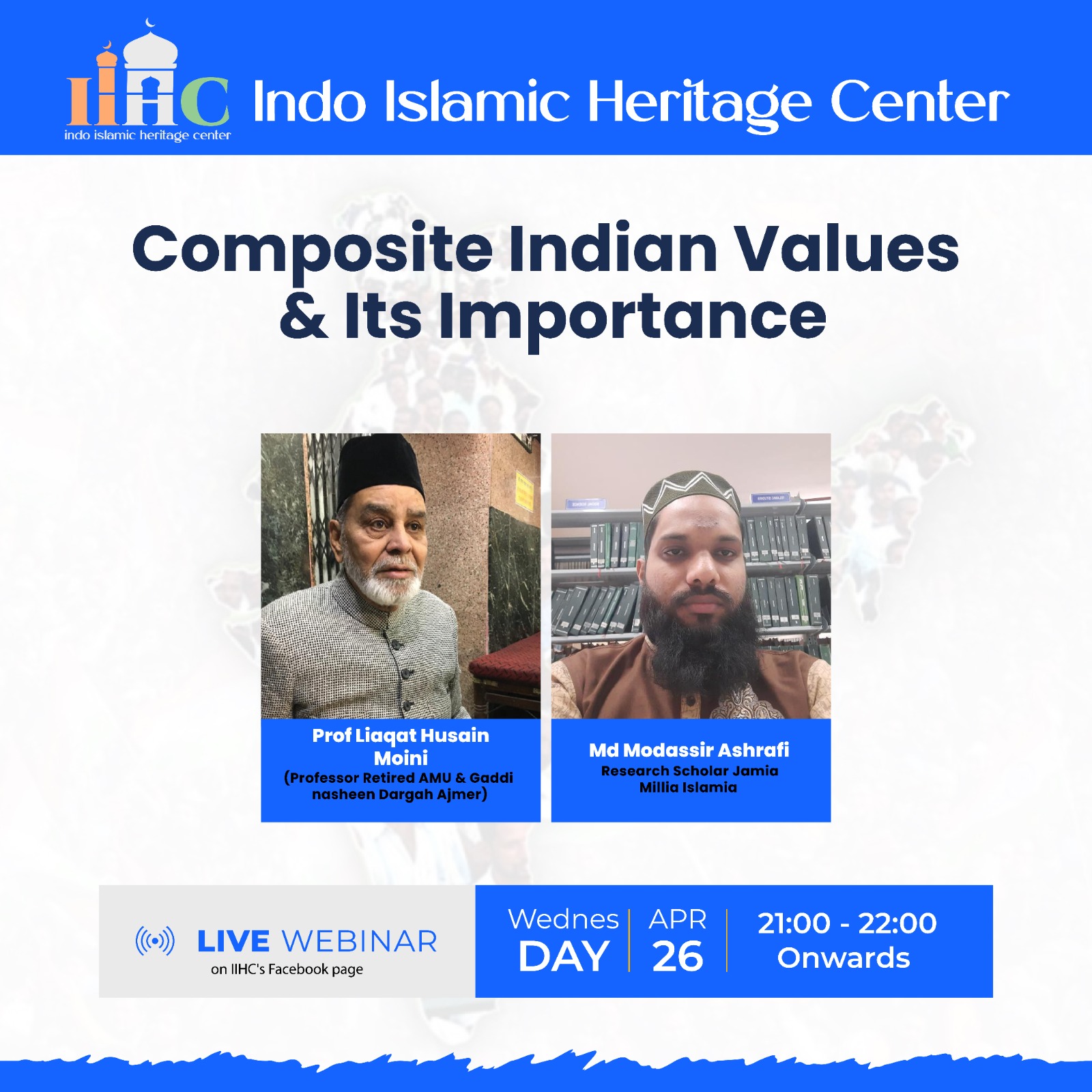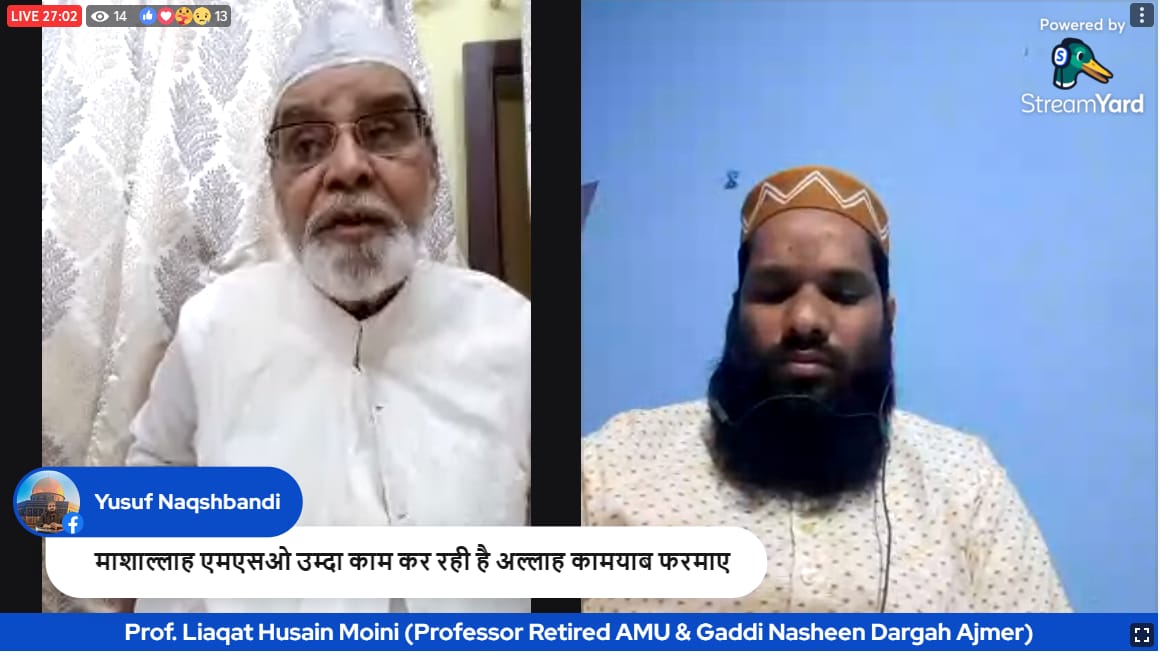New Delhi. The contribution of Urdu in India’s independence and its development cannot be forgotten. Attempts have been made to kidnap Urdu in Pakistan while India still has more Urdu speakers than Pakistan. This issue emerged in the one-day seminar. Seminar on ‘Urdu: An Indian language’ was organized by Indo Islamic Heritage Center (IIHC) at Indian Islamic Cultural Centre. After the seminar, a resolution was passed giving shelter to Urdu in the name of the Center and the states. Along with this, 16 personalities who served Urdu were also honored with the award named ‘Tahzeeb-e-Urdu’.
Sanjay Dwivedi, Director General, Indian Institute of Mass Communication, as the chief guest in the seminar said that Urdu is an Indian language and there is no dispute about it. If there was no partition, this situation of the dispute would not have arisen. When India was one, most of the owners and editors of Urdu newspapers were Hindus. These newspapers raised their voice for independence. He said that Gopichand Narang expanded the knowledge of the West by incorporating it into Urdu. If traders are investing money in Urdu it proves that Urdu has a market and a future.
IIHC Director Prof. Liaquat Hussain Moini said that Hazrat Amir Khusrau gave power to Urdu. He said that the Sufis associated Urdu with the local land. The Sufis have given emphasis to Urdu literature. Moini said that the contribution of Munshi Naval Kishore cannot be forgotten. When Hindu poets were writing Naat and Hamd, Iqbal was writing Nazm on Ram. This inclusive feeling is the power of Urdu. Urdu is not the language but the name of the culture.
The special guest of the program Prof. Akhtar ul Wasey said that Urdu holds the status of culture and mother near me. After independence, Pakistanis tried to kidnap Shah Waliullah, Sir Syed and Urdu as a result of partition. Language has no religion but religion needs language. Language is for dialogue, not for controversy. He said that most of the books taught in madrasas are the contribution of Naval Kishore ji. Similarly the place of Raskhan, Rahim, Shani and Bismillah in Hindi cannot be reduced.
Dr. Shujaat Ali Qadri, Deputy Director, IIHC said that the geographical part which is called the motherland of Urdu, remains in India even after partition whereas Pakistan makes false claim on Urdu. Even today, only 8 percent of the population of Pakistan speaks Urdu, but on the basis of the national language, it makes claims on Urdu which is not justified. He called upon the Indian scholars to make efforts for their contribution in Urdu.
There were a total of three sessions in the program in which about 40 scholars of professors, research scholars and Urdu journalists from reputed universities across the country read their research papers. The guests were welcomed by Dr. Shujaat Ali Qadri, Deputy Director, IIHC. The program was conducted by Zafaruddin Barkati and Dr. Hafizur Rahman.
Prominent delegates participating in the conference:
Prof. from Jawaharlal Nehru University. Khwaja Ikram, Delhi University Prof. Hriday Bhanu Pratap, Dr. Rishi Sharma from Banaras Hindu University, Dr. Hina Afreen from Jamia Millia Islamia and Abdul Wahid, Prof. Safdar Imam Qadri from Patna University, Dr. Muhammad Ahmad Naimi and Dr. Muhammad Fazlur Rahman from Jamia Hamdard, Dr. Tauseef Ahmad Wani and Zahoor Chishti from Kashmir, Haqqani Qasmi from Urdu Development Council, Dr. Siraj Ajmali and Prof. from Aligarh Muslim University. Ashhar Qadeer, Dr. Akhlaq Ahmed Usmani from Haridev Joshi University of Journalism, Jaipur and others.
16 awards for the service of Urdu language:
16 Urdu writers and scholars were honored with ‘Tahzeeb-e-Urdu’ award for the service of Urdu language.
Resolution passed in the conference:
Many demands were made in a resolution passed in the name of the Central and State Governments in the symposium. In the symposium a resolution was passed that
1. The Indian Council for Cultural Relations, Government of India, appoints teachers of Hindi in all countries where the population feels connected with Indian culture, language and Hindi. Indian Council for Cultural Relations should also send Urdu teachers to foreigners having similar sentiment for Urdu because Pakistan is benefiting by giving our walkovers. Under the guise of Urdu, Pakistan is also running its agenda which can be quelled through Indian Urdu teachers and Indian Urdu literature and culture can be given shelter.
2. Complete Urdu typing and designing in India is done on ‘Inpage’ software of Pakistan. This also gives a lot of revenue to Pakistan. Government of India should commission the project to develop Urdu typing software in collaboration with NIC. To make the project competitive, at least Rs 25 crore should be commissioned.
3. Similarly almost all the fonts of Urdu have been developed in Pakistan. It also gives a lot of revenue to Pakistan. Designer should be commissioned on a competition basis to develop Urdu font in collaboration with NIC to the Government of India. At least 20 lakh rupees should be commissioned for one font and at least 10 fonts should be designed in the first phase. 4. Ajmer is the Sufi headquarters of the whole of South Asia. There is a need to establish an International Sufi Center here. This project should be started by the Ministry of Culture,
Government of India. The Indo-Islamic Heritage Center is ready to provide policy support for the opening of this Sufi headquarters. If needed, its project blueprint can also be offered.
5. In the advertisements issued by the Department of Audio-Visual of the Government of India, 5% of the advertisements should be reserved for Urdu newspapers, television channels and websites.
6. In the states where Urdu is the second official language, 49 percent of the advertisements issued by the Public Relations Department should be reserved for Urdu newspapers, television channels and websites. These states are Delhi, Uttar Pradesh, Bihar, Telangana, Andhra Pradesh, Jharkhand and West Bengal.
7. Urdu should be given the status of the second official language in all the states which have 10 percent or more Muslim population according to the Indian census.
8. Urdu and Gurmukhi being the second official language of Delhi, the sign boards of all Delhi Metro stations, instructions, booklet, directory and website inside the train should be written in Hindi and English as well as in Urdu and Gurmukhi.
9. Wherever names are written in Urdu on stations and coaches of Indian Railways, they are written by hand. Many mistakes and misconceptions are found in their spelling, handwriting and design. After getting these surveys done, a survey and then work should be commissioned to Indian Railways to make all these names depend on computer design.
10. In the first phase, Urdu officers should be appointed in all Post Office Headquarters of India Post who can ensure their delivery in case any postal address is written in Urdu. Later in Urdu dominated states i.e. Delhi, Uttar Pradesh, Bihar, Telangana, Andhra Pradesh, Jharkhand and West Bengal it is necessary to appoint Urdu officers at every district level.
